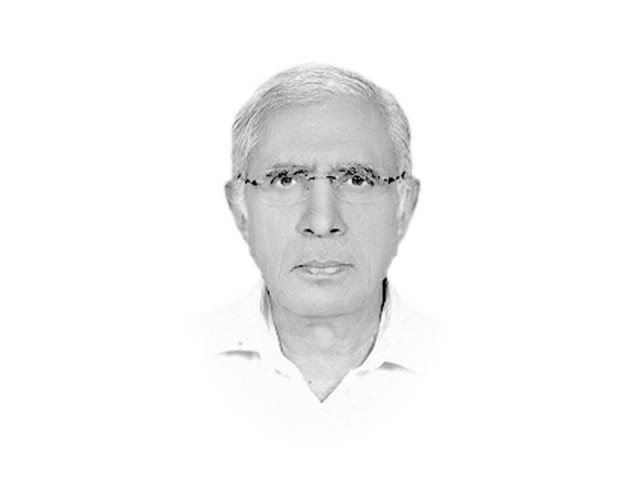A great disservice
Well aware of all factors, the establishment, one would like to believe, is in no mood to reverse its role.

The compulsions for such a role transformation, one would also like to believe, is being felt within the Institution in view of the current global and regional situation which is qualitatively different from the one that had existed before 9/11 and invasion of Afghanistan by the Nato and Isaf troops in November 2001. Today, there exists a huge trust deficit between Pakistan and the US because of the latter’s uncalled for suspicion that our premier defence institutions were indulging in double-speak vis-à-vis the so-called war on terror. At the same time, Washington has developed very close political, economic and nuclear relations with India, a country, which our establishment has historically regarded as Pakistan’s enemy No. 1. Thirdly, the government in Kabul, no matter who is in the saddle there, is likely to remain subservient to Washington and closer to New Delhi for a long time to come and will be naturally hostile to Pakistan unless the Afghan Taliban retake Afghanistan which is not likely to happen any time soon, if at all. And our all-weather friend, China, has the best of economic and trade relations with the US and India and also has shown keen interest in Afghanistan’s mineral wealth and therefore is not likely, one fears, to undermine its ‘national interests’ by siding with Pakistan in its three-way row which one would like to believe is not of Islamabad’s making. Moreover, our defence capabilities are being stretched to their limits by the on-going war against the Pakistani Talibans in North Waziristan, the ongoing cross-LoC shelling and the daily violation of the sanctity of Durand Line by the other side.
On the economic front, we are close to collapse. Currently, we are totally dependent on foreign remittances to keep our balance of payments position at a manageable level, our national budget deficit is being covered to a large extent by internal and external borrowing and at the same time by drastic curtailment of essential development projects, and the escalating power shortage has pushed the economy in a stagflation mode. The war on terror has also had a very serious impact on our available financial resources. And we all know the changed rules of the game vis-à-vis aid from the US after the passage of the Kerry-Lugar Bill by the US Congress. Important IMF board members, like the US and the UK vote a decisive ‘no’ when loan applications from countries under military regimes are considered.
Well aware of all these factors, the establishment, one would like to believe, is in no mood to reverse its role transformation process. This has been made very clear by the ISPR press release issued late on September 1 in response to what the PTI President, Javed Hashmi, had alleged that his party chairman, Imran Khan, had divulged a number of times during the party’s core committee meetings. Some of the PTI’s core committee members have already denied Hashmi’s allegations. But those who know Hashmi find it almost impossible not to believe him. Also, a part of the media, both domestic and foreign, has been circulating highly speculative stories based on similar allegations since the very start of the so-called long march of the PTI and the PAT. Perhaps, the past role of the establishment in such episodes had made some of the media persons spread speculative reports hinting at the army being behind these marches to conclude that a fourth martial law was in the offing. And maybe some of the interested media channels and media persons who are willingly spreading rumours are being manipulated by Musharraf loyalists to undercut the tenuous civil-military relations.
Published in The Express Tribune, September 3rd, 2014.
Like Opinion & Editorial on Facebook, follow @ETOpEd on Twitter to receive all updates on all our daily pieces.















COMMENTS
Comments are moderated and generally will be posted if they are on-topic and not abusive.
For more information, please see our Comments FAQ